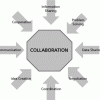Strategic advice to leverage new technologies
Technology is at the heart of nearly every enterprise, enabling new business models and strategies, and serving as the catalyst to industry convergence. Leveraging the right technology can improve business outcomes, providing intelligence and insights that help you make more informed and accurate decisions. From finding patterns in data through data science, to curating relevant insights with data analytics, to the predictive abilities and innumerable applications of AI, to solving challenging business problems with ML, NLP, and knowledge graphs, technology has brought decision-making to a more intelligent level. Keep pace with the technology trends, opportunities, applications, and real-world use cases that will move your organization closer to its transformation and business goals.
Recently Published
Mobile BI Success at Herbalife
Back in 2010, in a report on mobile BI (see BI Unwired: The Case for Mobile, Vol. 10, No. 9), I commented on a mobile BI application in use at that time at global nutrition company Herbalife.
Collaboration Technology: State of the Art and Implications
One of the topics in technology news these days is Big Data. So that raises a few questions. First, what do we mean by Big Data? And then, more pertinent to this Advisor, what are the architectural issues with which we should be concerned?
Reframing Frameworks: Part I -- Making EA Frameworks Your Ally
While frameworks are generally seen as a necessary theoretical backbone for architecture, they are often perceived as being too abstract, with little direct relevance in the architect's daily routine. But for experienced enterprise architects, frameworks are a constant guide, used to direct and manage everything they do. Why, then, is such a useful architectural tool so frequently overlooked or underused?
Reframing Frameworks: Part I -- Making EA Frameworks Your Ally
While frameworks are generally seen as a necessary theoretical backbone for architecture, they are often perceived as being too abstract, with little direct relevance in the architect's daily routine. But for experienced enterprise architects, frameworks are a constant guide, used to direct and manage everything they do.













